Post by Dominicanese on Jan 11, 2017 14:58:55 GMT -4
Saint Kitts & Nevis.


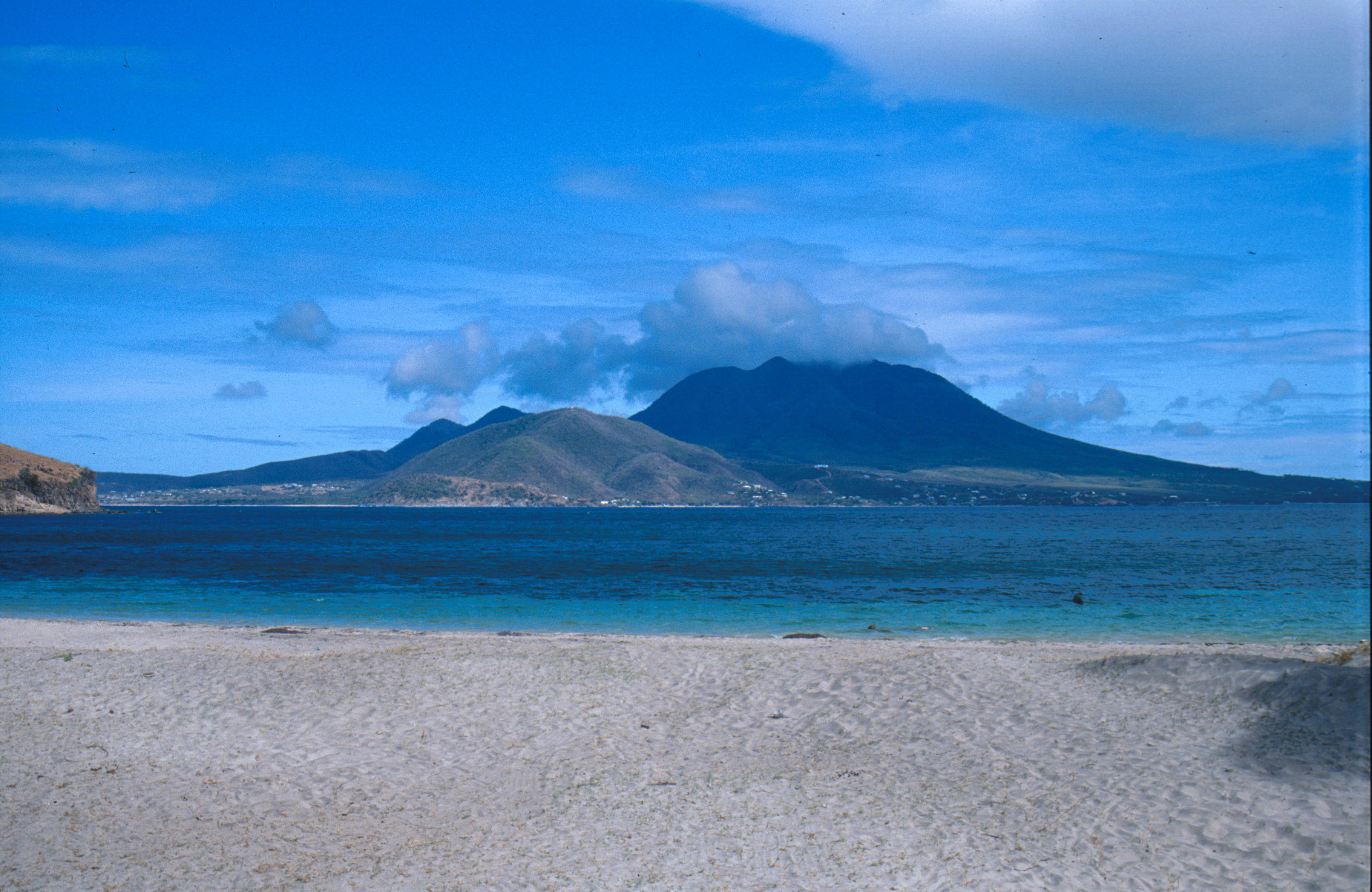

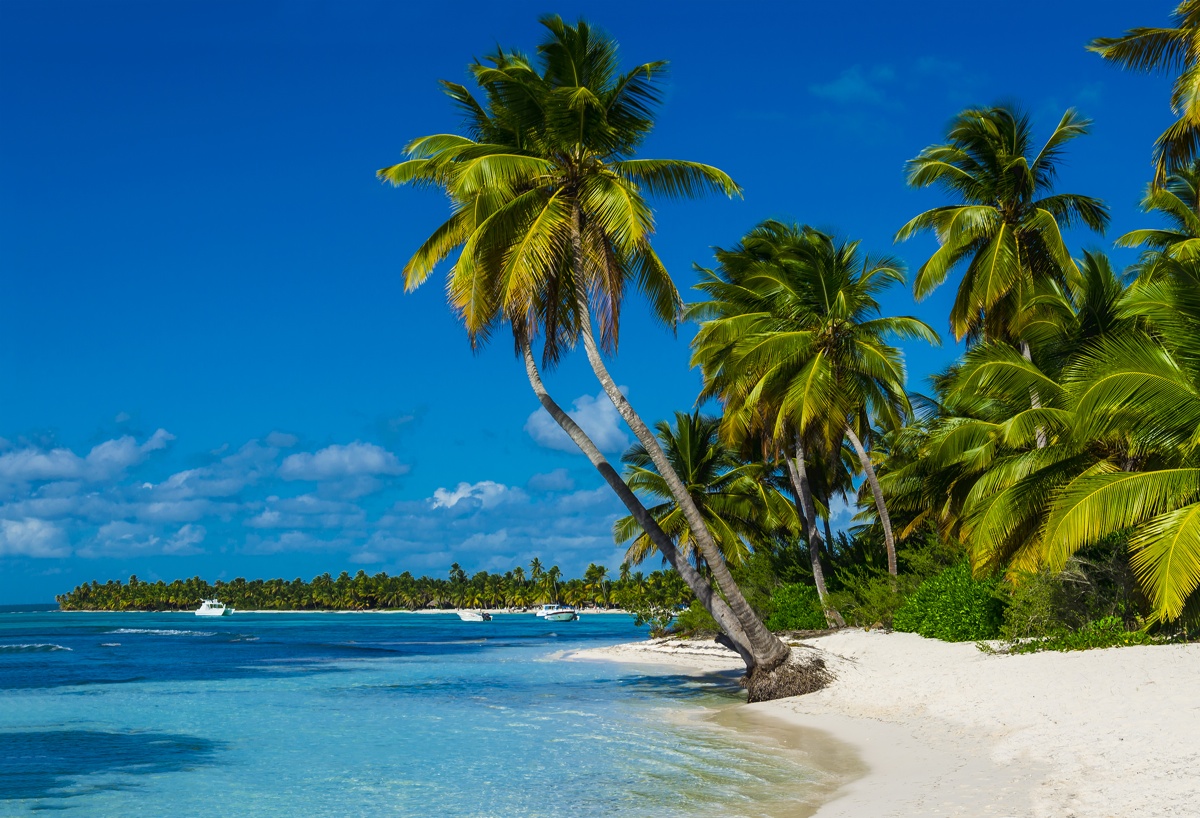
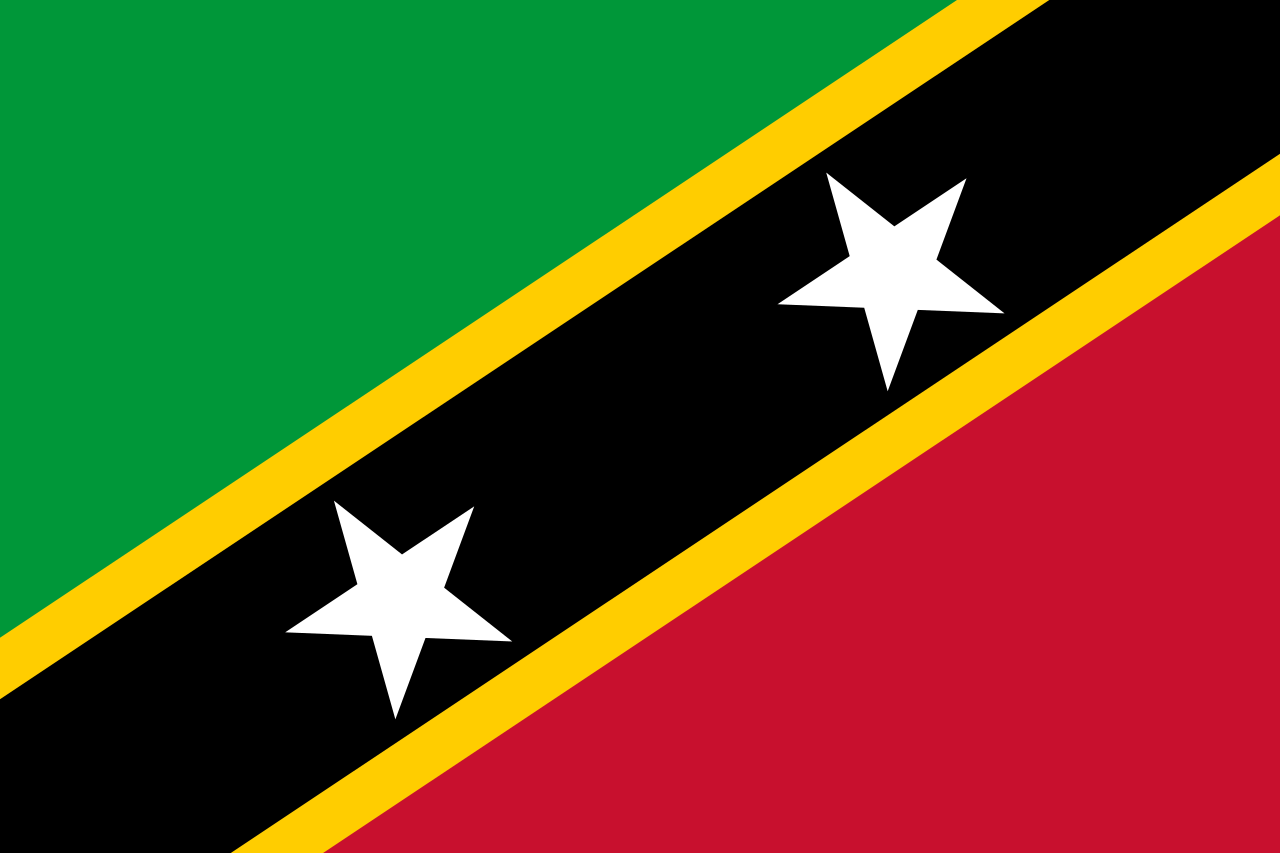





Culture:
The culture of St. Kitts and Nevis, two small Caribbean islands forming one country, has grown mainly out of the West African traditions of the slave population brought in during the colonial period. France and British colonists both settled the islands, and for a period of time the British imported indentured Irish servants. The native Caribs, skilled warriors, defended their lands by attacking the colonies. But by 1782, the British had gained control of St. Kitts and Nevis, which they retained until granting the islands their independence in 1983. British influence remains in the country's official language, English, while some islanders speak an English dialect. The influence of the French, Irish, and Carib seems less pronounced.
The people of St. Kitts and Nevis are devoutly religious. Several historic Anglican churches remain on Nevis, and fifty percent of the country's population still practices the religion. Most other people belong to another Christian denomination, though there are some Rastafarians and Bahá'í followers. An old Jewish cemetery on Nevis proves that there was once a Jewish population as well, but currently there is no active Jewish community in the country.
Cuisine:
With its rich soil, St. Kitts and Nevis grow a wide variety of fresh produce. Abundant seafood and meats such as goat add to the diet. The style of cooking is fairly simple, flavored much like other West Indian cuisine. Goat water stew, perhaps the country's most well-known dish, mixes goat, breadfruit, green pawpaw (papaya), and dumplings (also known as "droppers") in a tomato-based stew. Another favorite dish is cook-up, or pelau, which combines chicken, pig tail, saltfish and vegetables with rice and pigeon peas. Conkies bear a large similarity to tamales, though instead of having filling rolled inside the dough, the cornmeal is mixed together with grated sweet potato, pumpkin, coconut, and a few other ingredients; after wrapping the dough in banana leaves, they're boiled rather than steamed. Sweets tend to be simply made, sometimes with nothing more than fruit, like tamarind or guava, and sugar.
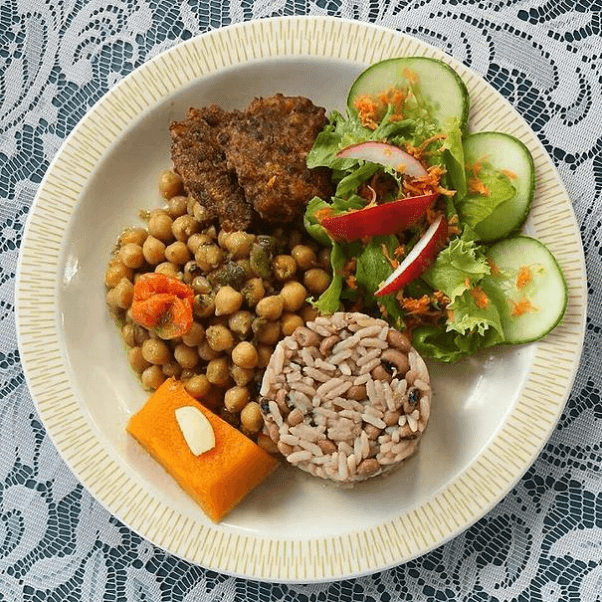
Rum is as popular on St. Kitts and Nevis as it is throughout the Caribbean. The Brinley Gold Company manufactures rum on St. Kitts, with such distinctive flavors as coffee, mango, and vanilla. But the national drink is actually Cane Spirits Rothschild (often abbreviated to CSR), distilled from fresh sugar cane. Belmont Estate and St. Kitts Rum also make rum on the island. In addition several of the beach bars will provide moonshine rum produced by individuals with homemade stills.

Many villages on Nevis hold cookouts on Friday and Saturday nights, where people come together to eat, drink, play games like dominoes, and have a good time.
Music:
The music of Saint Kitts and Nevis is known for a number of musical celebrations including Carnival (December 17 to January 3 on Saint Kitts). The last week in June features the St Kitts Music Festival, while the week-long Culturama on Nevis lasts from the end of July into early August.

In addition, there are other festivals on the island of Saint Kitts. There is Inner City Fest in February in Molineaux Green Valley Festival usually around Whit Monday in village of Cayon, Easterama around Easter (April) in village of Sandy Point, Fest-Tab, around July-August in the village of Tabernacle, and La festival de Capisterre, around Independence Day in Saint Kitts and Nevis (19 September), in the Capisterre region. These celebrations typically feature parades, street dances and salsa, jazz, soca, calypso and steelpan music.
Ethnic Racial Composition:
* 92.7% Black & Mulatto
* 4.0% East Indian
* 3.3% White
People:
The population has been estimated (1999) to be forty-four thousand, with thirty-five thousand on Saint Kitts and nine thousand on Nevis. However, many more Kittitians and Nevisians live abroad than inhabit the islands. Ninety-five percent of the populace consists of Afro-Caribbeans who are largely descendants of slaves imported to work on sugar plantations, with the remainder made up of descendants of British settlers and early and later migrants.
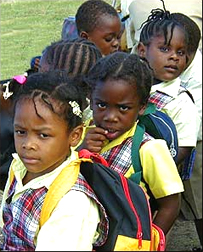
Saint Kitts and Nevis is a twin-island federation whose economy is characterised by its dominant tourism, agriculture and light manufacturing industries. Sugar was the primary export from the 1940s on, but rising production costs, low world market prices, and the government's efforts to reduce dependence on it have led to a growing diversification of the agricultural sector. In 2005, the government decided to close down the state-owned sugar company, which had experienced losses and was a significant contributor to the fiscal deficit.
Languages:
English is the official language of Saint Kitts & Nevis. They also speak a local dialect in informal situations and it is simply refered to as "Dialect" or Kittian English. Kittian English has it's roots in Southern Irish & British English with some influences from West African languages. There is also some words of French and Kalinago origin.
Religion:
Most inhabitants are Christians, mainly Anglicans and other Protestant churches. The Roman Catholics are pastorally served by the Roman Catholic Diocese of Bridgetown (on Barbados), while the Anglicans by the Diocese of the North East Caribbean and Aruba. There is also an unknown number of Rastafarians.
Sports:
Cricket is common in Saint Kitts and Nevis. Top players can be selected for the West Indies cricket team. The late Runako Morton was from Nevis. Saint Kitts and Nevis was the smallest country to host 2007 Cricket World Cup matches.
The St. Kitts and Nevis national football (Soccer) team, also known as the "Sugar Boyz", has experienced some international success in recent years, progressing to the semi-final round of qualification for the 2006 FIFA World Cup in the CONCACAF region. Led by Glence Glasgow, they defeated the US Virgin Islands and Barbados before they were outmatched by Mexico, Saint Vincent and the Grenadines, and Trinidad and Tobago.
Saint Kitts & Nevis videos











Culture:
The culture of St. Kitts and Nevis, two small Caribbean islands forming one country, has grown mainly out of the West African traditions of the slave population brought in during the colonial period. France and British colonists both settled the islands, and for a period of time the British imported indentured Irish servants. The native Caribs, skilled warriors, defended their lands by attacking the colonies. But by 1782, the British had gained control of St. Kitts and Nevis, which they retained until granting the islands their independence in 1983. British influence remains in the country's official language, English, while some islanders speak an English dialect. The influence of the French, Irish, and Carib seems less pronounced.
The people of St. Kitts and Nevis are devoutly religious. Several historic Anglican churches remain on Nevis, and fifty percent of the country's population still practices the religion. Most other people belong to another Christian denomination, though there are some Rastafarians and Bahá'í followers. An old Jewish cemetery on Nevis proves that there was once a Jewish population as well, but currently there is no active Jewish community in the country.
Cuisine:
With its rich soil, St. Kitts and Nevis grow a wide variety of fresh produce. Abundant seafood and meats such as goat add to the diet. The style of cooking is fairly simple, flavored much like other West Indian cuisine. Goat water stew, perhaps the country's most well-known dish, mixes goat, breadfruit, green pawpaw (papaya), and dumplings (also known as "droppers") in a tomato-based stew. Another favorite dish is cook-up, or pelau, which combines chicken, pig tail, saltfish and vegetables with rice and pigeon peas. Conkies bear a large similarity to tamales, though instead of having filling rolled inside the dough, the cornmeal is mixed together with grated sweet potato, pumpkin, coconut, and a few other ingredients; after wrapping the dough in banana leaves, they're boiled rather than steamed. Sweets tend to be simply made, sometimes with nothing more than fruit, like tamarind or guava, and sugar.

Rum is as popular on St. Kitts and Nevis as it is throughout the Caribbean. The Brinley Gold Company manufactures rum on St. Kitts, with such distinctive flavors as coffee, mango, and vanilla. But the national drink is actually Cane Spirits Rothschild (often abbreviated to CSR), distilled from fresh sugar cane. Belmont Estate and St. Kitts Rum also make rum on the island. In addition several of the beach bars will provide moonshine rum produced by individuals with homemade stills.

Many villages on Nevis hold cookouts on Friday and Saturday nights, where people come together to eat, drink, play games like dominoes, and have a good time.
Music:
The music of Saint Kitts and Nevis is known for a number of musical celebrations including Carnival (December 17 to January 3 on Saint Kitts). The last week in June features the St Kitts Music Festival, while the week-long Culturama on Nevis lasts from the end of July into early August.

In addition, there are other festivals on the island of Saint Kitts. There is Inner City Fest in February in Molineaux Green Valley Festival usually around Whit Monday in village of Cayon, Easterama around Easter (April) in village of Sandy Point, Fest-Tab, around July-August in the village of Tabernacle, and La festival de Capisterre, around Independence Day in Saint Kitts and Nevis (19 September), in the Capisterre region. These celebrations typically feature parades, street dances and salsa, jazz, soca, calypso and steelpan music.
Ethnic Racial Composition:
* 92.7% Black & Mulatto
* 4.0% East Indian
* 3.3% White
People:
The population has been estimated (1999) to be forty-four thousand, with thirty-five thousand on Saint Kitts and nine thousand on Nevis. However, many more Kittitians and Nevisians live abroad than inhabit the islands. Ninety-five percent of the populace consists of Afro-Caribbeans who are largely descendants of slaves imported to work on sugar plantations, with the remainder made up of descendants of British settlers and early and later migrants.

Saint Kitts and Nevis is a twin-island federation whose economy is characterised by its dominant tourism, agriculture and light manufacturing industries. Sugar was the primary export from the 1940s on, but rising production costs, low world market prices, and the government's efforts to reduce dependence on it have led to a growing diversification of the agricultural sector. In 2005, the government decided to close down the state-owned sugar company, which had experienced losses and was a significant contributor to the fiscal deficit.
Languages:
English is the official language of Saint Kitts & Nevis. They also speak a local dialect in informal situations and it is simply refered to as "Dialect" or Kittian English. Kittian English has it's roots in Southern Irish & British English with some influences from West African languages. There is also some words of French and Kalinago origin.
Religion:
Most inhabitants are Christians, mainly Anglicans and other Protestant churches. The Roman Catholics are pastorally served by the Roman Catholic Diocese of Bridgetown (on Barbados), while the Anglicans by the Diocese of the North East Caribbean and Aruba. There is also an unknown number of Rastafarians.
Sports:
Cricket is common in Saint Kitts and Nevis. Top players can be selected for the West Indies cricket team. The late Runako Morton was from Nevis. Saint Kitts and Nevis was the smallest country to host 2007 Cricket World Cup matches.
The St. Kitts and Nevis national football (Soccer) team, also known as the "Sugar Boyz", has experienced some international success in recent years, progressing to the semi-final round of qualification for the 2006 FIFA World Cup in the CONCACAF region. Led by Glence Glasgow, they defeated the US Virgin Islands and Barbados before they were outmatched by Mexico, Saint Vincent and the Grenadines, and Trinidad and Tobago.
Saint Kitts & Nevis videos
 Playing the Race Card
Playing the Race Card

